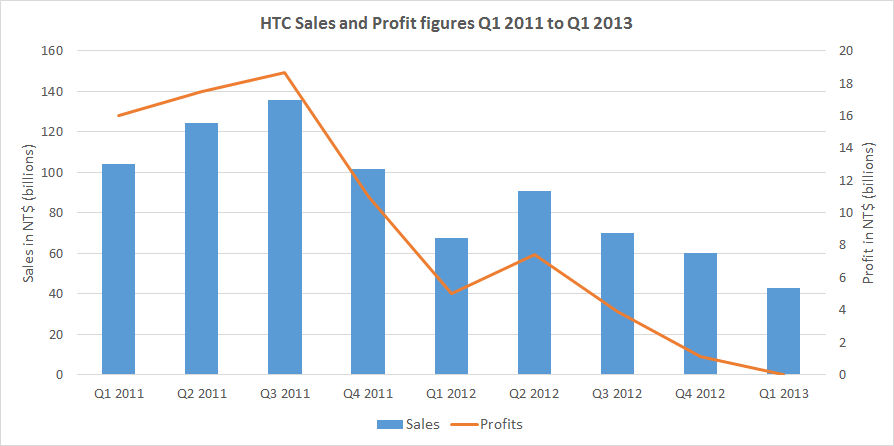
The issue facing HTC is that it must maintain sales levels at a level that will sustain planned operations in both device development, sales, and marketing. There is a danger than falling sales could lead to a vicious circle where cuts have to be made to the marketing budget in order to maintain sufficient cash flow, which could then lead to a further fall in sales.
On a positive note HTC is demonstrating relatively strong operating expenditure control in the face of volatile sales figures (maintaining a positive profit figure in the face of a sales drop of 37%), which is indicative of good management in tune with the current status of the business.
It is too early to call the situation desperate, though HTC will almost certainly face criticism and may start to be talked about as a potential acqusition target. Much will depend on sales of the HTC One in the next few quarters and getting other devices, including the HTC First (Facebook phone), to the market in a timely manner will also be important.
The HTC One is a excellent device and has been well received by technology reviewers. We rate it, ahead of the Samsung Galaxy S4, as the best Android device currently available. That may not be enough though as smartphone sales are about more that how "good" a device is. A good example of this is the comparison between the Nokia Lumia 920 and HTC8X, both are good devices and have been well reviewed, but sales figures and other data suggest the Lumia 920 is outselling the 8X by several orders of magnitude in most markets.
The crux of the problem is that HTC is facing off against two giants, Nokia and Samsung, in the Windows Phone and Android ecosystems respectively, both of which have much bigger marketing budgets, better economies of scale, and more sales channels than HTC. In order to counter act this HTC must either out-innovate or be more nimble than its larger rivals. An easy proposition to suggest, but one that is much harder to implement.
